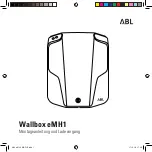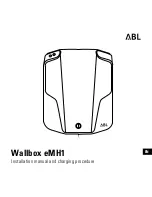
CAUTIONS
■
For the sake of safety, the passengers must wear seat belts properly.
■
AEB is only one of the driving assist systems. Do not depend on AEB more
than necessary. Driver shall drive with caution.
■
AEB may not be able to identify the modified or decorated vehicles with
special appearance.
■
Curved, hilly or unusual bumpy roads may cause the AEB not to detect the
preceding vehicle. Exercise greater caution to drive.
■
The AEB may not be able to identify such targets as riders.
■
When the electronic stability control (ESC) is turned off or failed, the braking
function of the AEB will not be activated.
■
The AEB may not work properly if there is heavy snow or rain.
■
The AEB may not work properly in the scenes with strong backward lamping,
road reflection and insufficient ambient lamping. Exercise greater caution to
drive.
■
If your vehicle is needed to tow a disabled vehicle or a trailer, deactivate the
AEB. When the brakes are controlled under towing conditions, the safety of
the vehicle deteriorates.
■
The high chassis of the preceding vehicles or the cargo protruding from the
rear of the preceding vehicle may increase the risk of danger.
■
Make sure the front windshield is not modified or covered by any auxiliary
equipment. The modified or covered windshield may cause the AEB to
deteriorate or fail.
■
If the camera is displaced due to a collision, the AEB function may be
degraded or failed. Have the AEB calibrated in time.
■
Do not use the improperly-calibrated AEB.
■
The AEB obtains the vehicle information by recognizing the rear of the
vehicle, so no warning is given to the oncoming vehicle and the horizontally
crossing vehicle in front.
■
The AEB is a driving assistance system but it cannot detect the vehicle in
all situations. For example, the vehicles with a largely-covered rear, strange
shape (such as overloaded vehicles transporting trees), seriously-damaged
rear and other.
■
When your vehicle is driving on a curve, the AEB may not be able to
accurately determine the state of a stationary object in the direction of
travelling. Therefore, the AEB may not perform active emergency brake
assistance.
■
The AEB cannot help you in all circumstances, so you should not rely entirely
on it but focus on observing the road conditions to ensure driving safety.
■
The AEB system is an active auxiliary safety system, but it cannot completely
prevent your vehicle at low speed from colliding with the preceding vehicle.
It is your responsibilities to know how to drive and how to avoid dangerous
situations. You should apply the brakes as soon as possible in an emergency.
4-5..Using.Other.Driving.Systems
184
185
















































